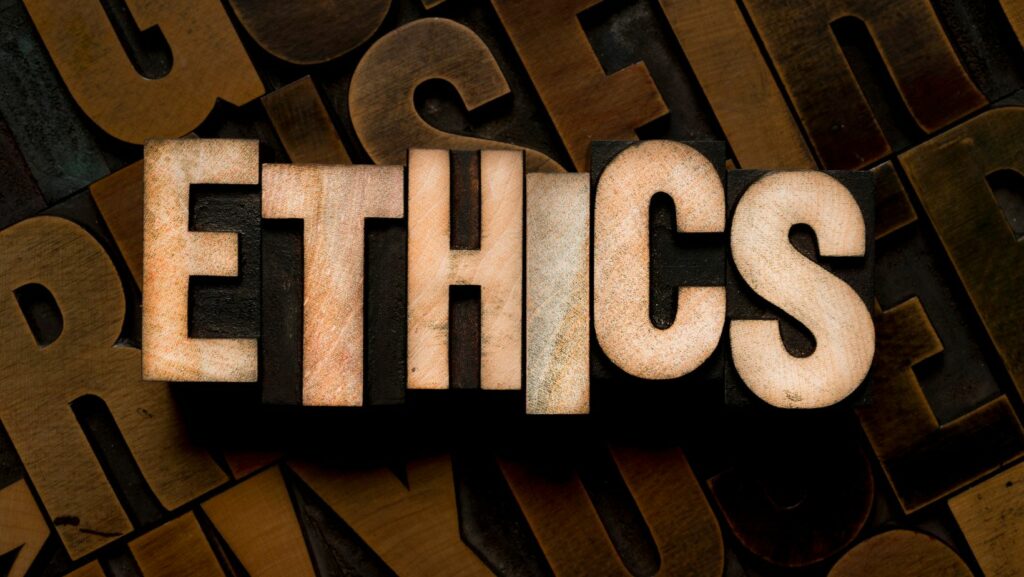Media Ethics: Readings on Critical Thinking and Cyber Dynamics PDF Free Download
- Importance of Media Ethics: Understanding media ethics is crucial in navigating the digital landscape, enhancing credibility and truthfulness in information dissemination.
- Role of Critical Thinking: Critical thinking skills are essential for analyzing and evaluating media sources, helping individuals distinguish between credible and misleading information.
- Key Ethical Principles: Media ethics includes key components like truthfulness, fairness, accountability, privacy, and transparency, guiding ethical behavior in media practices.
- Impact of Cyber Dynamics: The interaction between cyber dynamics and media ethics influences information creation and consumption, heightening the risks of misinformation and ethical violations.
- Accessing Resources: Numerous platforms provide free PDF downloads of readings on media ethics, such as Google Scholar and ResearchGate, aiding individuals in their quest for knowledge.
- Evaluating Sources: When exploring media ethics literature, consider author credentials, publication date, citations, relevance to cyber dynamics, and reader reviews for reliable information.
In today’s fast-paced digital landscape, understanding media ethics has never been more crucial. As individuals navigate a sea of information, critical thinking skills are essential for discerning fact from fiction. This article delves into key readings that explore the intersection of media ethics, critical thinking, and the complexities of cyber dynamics.
With the rise of misinformation and the rapid evolution of technology, ethical considerations in media have become a pressing concern. By examining these texts, readers can enhance their understanding of ethical practices and the responsibilities that come with digital communication. Accessing these resources in PDF format for free can empower anyone interested in deepening their knowledge and fostering a more informed society.
Overview of Media Ethics
Media ethics encompasses the principles that govern the behavior of individuals and organizations engaged in the collection, dissemination, and analysis of information. This framework guides professionals in making decisions that affect public perception and the integrity of information.
Key components of media ethics include:
- Truthfulness: Commitment to accuracy in reporting. Professionals verify information before publication to maintain credibility.
- Fairness: Ensuring all sides of a story receive representation. This includes avoiding bias and providing context.
- Accountability: Accepting responsibility for content produced. When errors occur, prompt corrections are essential.
- Privacy: Respecting individuals’ rights to privacy. Ethical considerations arise in balancing public interest with personal boundaries.
- Transparency: Open disclosure of possible conflicts of interest. This allows audiences to understand the influences behind content.
Understanding media ethics fosters critical thinking. It equips individuals to navigate the complexities of digital media and discern reliable information from misinformation. In a rapidly changing technological landscape, these principles serve as a vital guide for ethical behavior in media. Exploring literature on media ethics enhances knowledge and awareness of these crucial issues, especially in relation to cyber dynamics.
Critical Thinking in Media Ethics

Critical thinking plays a crucial role in media ethics, especially in an age where misinformation spreads rapidly. It enables individuals to analyze, evaluate, and interpret information logically, fostering a clearer understanding of ethical media practices.
Importance of Critical Thinking
Critical thinking equips individuals to differentiate between credible sources and misleading content, thereby enhancing media literacy. It promotes skills necessary for questioning assumptions, dissecting arguments, and identifying biases in various media forms. This discernment is vital in combatting misinformation and reinforcing public trust in media outlets.
Key Concepts and Theories
Several concepts and theories underpin critical thinking in media ethics:
- Cognitive Bias: Refers to systematic patterns of deviation from norm or rationality in judgment, affecting decision-making processes.
- Ethical Theories: Include consequentialism, deontological ethics, and virtue ethics, guiding practitioners in evaluating the impact of their media practices.
- Media Literacy: Involves understanding media’s role in society, teaching individuals how to access, analyze, evaluate, and create media content critically.
- Rhetorical Analysis: Focuses on examining texts and speeches to uncover the persuasive strategies used in media messages and their ethical implications.
Engaging with these concepts fosters a comprehensive approach to navigating the complexities of ethical considerations in media, encouraging more responsible information consumption and production.
Cyber Dynamics and Media Ethics

Cyber dynamics profoundly influence media ethics. The interplay between technology and ethical principles shapes the landscape of information dissemination, making it essential for individuals to understand these dynamics.
Interaction Between Cyber Dynamics and Ethics
Cyber dynamics affect how information is created, shared, and consumed. Digital platforms enable rapid dissemination, increasing the risk of misinformation and ethical violations. Ethical principles such as transparency and accountability become critical as organizations navigate these complex dynamics. The rise of social media amplifies issues like privacy breach and user manipulation, illustrating the need for robust ethical guidelines. Engaging with these issues fosters a better understanding of responsible media consumption and production.
Case Studies and Real-World Applications
Case studies demonstrate the impact of cyber dynamics on media ethics. For instance, the Cambridge Analytica scandal revealed how data misuse can alter public perception during elections. Such examples underscore the necessity of ethical decision-making in digital communications. Another case, the misinformation spread during the COVID-19 pandemic, highlights the consequences of neglecting ethical principles in media. By examining these real-world applications, individuals gain insights into the importance of aligning media practices with ethical standards in the digital age.
Accessing Readings on Media Ethics

Accessing readings on media ethics provides invaluable insights into the critical thinking necessary for navigating today’s digital landscape. Several resources offer free PDF downloads for those seeking to deepen their understanding of media ethics and its dynamic intersection with technology.
Where to Find Free Downloads
Online platforms host a variety of resources for downloading free PDFs on media ethics. Notable sources include:
- Google Scholar: A comprehensive database that provides access to academic papers and publications.
- ResearchGate: A networking site for researchers that often includes free access to scholarly articles.
- Academia.edu: A platform where academics share their work, including free PDFs on relevant topics like media ethics.
- Open Access Journals: Numerous journals publish work under open access policies, allowing free downloads of articles addressing media ethics.
- Library Genesis: A shadow library that contains a vast collection of scholarly articles, including those on media ethics.
- Author Credentials: Review the qualifications and affiliations of the authors. Recognized experts in media ethics lend credibility to the content.
- Publication Date: Check for the recency of the material. Current publications reflect the latest discussions and developments in media ethics.
- Citations and References: Quality resources include citations from reputable sources. This practice underscores the reliability of the information provided.
- Relevance to Cyber Dynamics: Assess how the readings address the interplay of media ethics and technology. Relevant resources enhance understanding of contemporary challenges.
- Reader Reviews: Explore web platforms or forums for feedback from other readers, which can provide insights into the effectiveness and clarity of the material.
Fast-paced Digital Environment
Understanding media ethics is crucial in today’s fast-paced digital environment. The interplay between critical thinking and ethical principles shapes how individuals engage with information. By exploring the recommended readings and resources, readers can enhance their media literacy and make informed decisions in the face of misinformation.
As technology continues to evolve, the importance of ethical practices in media cannot be overstated. Engaging with literature on this subject not only fosters responsible information consumption but also empowers individuals to navigate the complexities of cyber dynamics effectively. Ultimately, a well-informed society can better uphold the values of truthfulness, fairness, and accountability in media.

